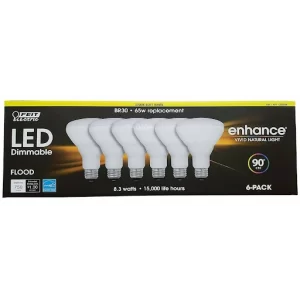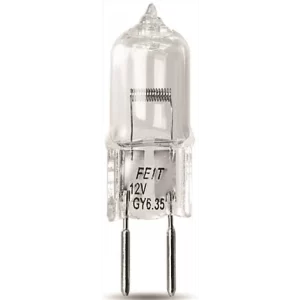The basic design of the incandescent lamp has not changed much since the late 1800s, when Thomas Alva Edison successfully produced the fist operational electric light bulb. The filament inside an incandescent lamp must be protected so that oxygen does not reach it and cause it to evaporate on contact. Most incandescent lamps are either vacuum-sealed or gas-filled. Incandescent lamp filaments are made of tungsten. Tungsten is a metal that can operate at very high temperatures without evaporating too quickly an resulting in early lamp failure. Incandescent filaments only convert about 10 percent of the energy used into visible light, so it is necessary to use a material that can withstand extremely high temperatures. Most lamps use a coiled filament design, which has been found to be stronger and deliver better performance.
| GENERAL |
| Bulb Shape |
G16 1/2 |







